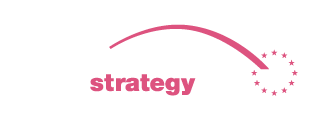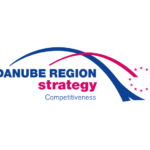The fourth political-strategic meeting of the Working Group Clusters of Excellence took place on 4 December 2014 in Budapest, Hungary. 38 cluster experts, cluster managers and governmental representatives, representing ten countries, came together in order to jointly develop cooperation projects based on results of the Technical Assistance Facility for Danube Region Projects, which was awarded to DanuClus in the course of 2014. Later, together with Gerd Meier zu Köcker from the Cluster Agency Baden-Württemberg, they discussed methodologies for developing a strategic cluster cooperation approach.
Powerpoint Presentation Dr. Sigrid Winkler:
141204_WG_CoE_WSI_Budapest.pdf
Meeting minutes in pdf:
141204_Meeting_Minutes_WG_Clusters_Budapest.pdf

Session 1: Technical Assistance Facility for DanuClus
Sigrid Winkler presented the results of the consulting project on DanuClus financed by the Technical Assistance Facility for Danube Region Projects. The consultancy Metis assisted DanuClus between April-October 2014 in order to develop feasible projects for funding applications in the ETC Danube Program. The major outcome of the consultancy effort was that a funding application for a cluster networking platform with a variety of different pilot activities and a large number of project partners would not be feasible in the Danube Program. Therefore, the consultancy instead applied, based on the suggested topics included in the draft cooperation program of ETC Danube, a thematic approach by developing three separate projects each with a limited number of partners. The suggested topics are: Industry at School, Renewable Energy and Energy-efficiency, and Food Technologies.
Criticism was raised by the members of the working group that the suggested project ideas did not sufficiently reflect the needs of clusters in the region. The working group therefore discussed how to adapt the suggested project ideas to the requirements of Danube Region clusters. The discussion resulted in preliminary project ideas and relevant follow-up activities:
Industry at School:
Clusters propagate in regions with too few engineers the message that “industry is sexy”. In pilot projects, one school (ie secondary education, VET) and one cluster should each work together in order to raise interest in industry-related jobs. Each partner chooses a different format of such cooperation (interactive workshops in schools, information sessions about industry, company visits for pupils etc.) in order to establish different methodologies and develop best practices. On the level of tertiary education, students should receive internship opportunities in clusters’ partner firms.
Mostly clusters with public funding and, accordingly, tasks in service of the general public, will be part of this project, as fully company funded clusters will receive resistance from their partner firms not to engage in a project with a more long-term and education-related aim.
To Do:
- Upper Austria (AT, Sigrid Winkler) checks until end of 2014 whether there is interest in being a lead partner in this project
- Other members of the working group check until the end of 2014 whether in their region clusters would be interested in taking part in the project. Selection criteria for clusters are that they have experience in training (especially at school level) and have a demand for more engineers in their region.
- Together with the partner candidates the work packages will be developed in early 2015.
Energy-efficiency:
Cluster managers receive training in order to be able to teach their cluster firms methods for energy and material efficiency in order to optimize production processes and improve productivity. The proposed methods are easy to implement, do not require new investments or an innovation effort. For more elaborate optimization methods, an innovation voucher system could be implemented in a second phase of the project.
To Do:
- Cluster Agency Baden-Württemberg (DE, Gerd Meier zu Köcker) is lead partner. Until mid-January the Cluster Agency will revise the work packages and circulate them in the Working Group.
- Other interested partners so far: Magurele (RO)
- The project will be developed in close cooperation with the WG on Energy Efficiency in PA8 (Rumjana Hilpert)
Food technologies:
Food standards and certifications are a major problem for food producers as they differ from country to country and often undergo revision. In this project, a training for agro-food cluster managers will be offered to disseminate information on food standards (and their changes) in the EU and major export markets outside the EU. Bio food could be a specific focus.
To Do:
- Lead partner is the Ministry of Economy Romania (RO, Costin Lianu) or the Union of Slovak Clusters (SK, Daniel Acs)
- The lead partner will revise the work packages and circulate them in the Working Group until mid-January 2015.
- Synergies with the project SIRA (PA8) and the OECD expert group on food standards (contact Alan Paic) will be sought.
Session 2: DanuClus as Platform for Clusters in the Danube Region
The working group decided that despite the problem that DanuClus will not be able to receive funding as a project in the ETC Danube Program, the brand “DanuClus” should be maintained in the Working Group.
Session 3: Development of a Cooperation Strategy for Clusters in the Danube Region
The rationale for this discussion was that cross-regional cluster cooperation among Danube partners is still weak. Especially when it comes to specific actions. Thus two options have been presented by the ClusterAgentur BW (Gerd Meier zu Köcker).
Powerpoint presentation Dr. Gerd Meier zu Köcker:
141204_MzK_cooperation_strategy_danube_extern
Option 1 is a three level approach, in order to involve all relevant stakeholders (cluster policy makers, cluster managers and cluster firms). Cooperation on policy level should aim to improve regional cluster policies. Cooperation on cluster manager level should contribute to a further professionalization of cluster managements. Cooperation on cluster firm level can contribute to an enhanced competitiveness.
Proposed actions:
Policy level: Peer Assessment on Regional Cluster Policies, which is a well structured way to peer review and benchmark regional cluster policy approaches. It
- is strongly supported by the EC to motivate regions to define better policies,
- stimulates mutual learning and striving for policy excellence,
- reveals where a given regional policy approach stands compared to other peers,
- does not intend provide any ranking or good / bad
- helps to better implement Smart Specialisation Strategies for the benefits of clusters and cluster actors
Cluster Manager level: Mutual benchmarking of cluster management processes, like strategy development, financing, service development or managing members. Aim is to exchange experience about what works for Danube Cluster Managements, which cluster management services are most suitable for firms from Danube region and how can Cluster Management better serve regional policies.
Cluster firm level: Organising and participating in trans-regional roadmapping exercises to better understand upcoming trends and future industrial transformation processes. Such joint roadmapping exercises also contribute to a trans-regional matching
Option 2 was an approach based on the assumption that:
- especially those regions shall cooperate in areas of mutual interest and mutual strength,
- emerging Industries reveal over-average potential for cross-border cooperation,
- cooperation is driven by the interest of the cluster actors, not because of funding opportunities
- not all regions need to cooperation at the same time in all fields
- matured cluster organisation coordinate cross-border actions
- critical mass of cluster actors facilitates cooperation
In the following an approach was presented, which revealed strong Danube regions in the new 10 Emerging Industries. The idea was that the working group focus on industries where many regions have a strong industrial base.
Outcome:
The majority of the participants considered option 1 as most appropriate, and proposed to include elements of option 2 into the roadmapping activities on the cluster firm level. As a thematic choice among the emerging industries, mobility was seen as the most promising option for the roadmapping exercise. During the next months, more details and actions will be agreed on.



